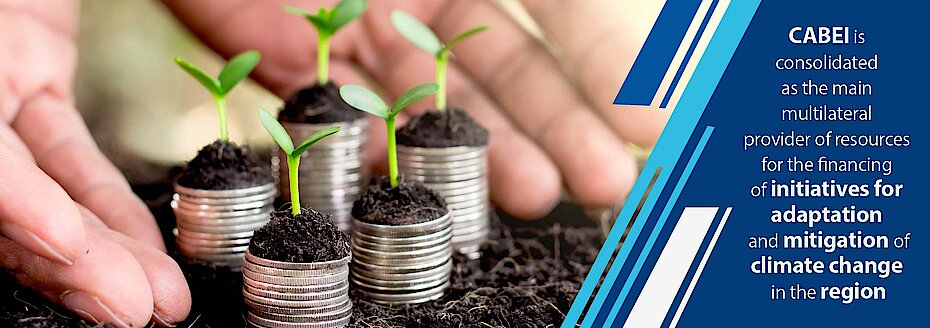The region's countries present conditions of vulnerability to the effects of climate change, both because of their geographical location and because of the development challenges presented by their countries, as well as because of their resilience capacities. The Central American Bank for Economic Integration (CABEI), as a strategic ally of the region, has been committed to the defense and conservation of the countries' environmental and cultural heritage since the inception of its Articles of Agreement.
Within the framework of the Bank's Assembly of Governors in April 2016, the Institution expressed "CABEI's Declaration of Commitment to Promote and Support Financing Actions for the Adaptation and Mitigation of Climate Change," in which it reaffirmed its institutional leadership with the region to channel financial resources that allow countries to face the challenges of climate change, thus increasing the resilience of its inhabitants. This commitment also responds to the efforts of all the countries that are financing the Bank, who have committed themselves to the fight against climate change by drafting their documents of National Determined Contributions (NDCs).
Within the framework of CABEI's institutional mission and the 2020-2024 Institutional Strategy: Enviromental and Social Sustainability, is established as a transversal axis. Through this axis, the importance of promoting environmental sustainability and reducing vulnerability to natural disasters associated with climate change is emphasized to ensure that the efforts made in social development, competitiveness and integration have environmental viability in the medium and long term.
CABEI's spectrum of attention includes initiatives at the national and regional level through innovative financial and non-financial mechanisms that promote financing and technical assistance in priority sectors for environmental and social sustainability, including mitigation and adaptation measures to climate change, which are aligned with the focus areas of its institutional strategic framework, as well as with the plans and policies defined by the countries.
In this sense, the regional interventions developed by CABEI consider the strategic lines defined in the Regional Environmental Framework Strategy (ERAM) and the Central American Policy of Integral Disaster Risk Management (PCGIR), and are aligned with the Climate Change and Disaster Prevention pillar of the Central American Integration System (SICA) regional agenda, which includes 5 priority pillars of the Central American integration process.
In this context, significant achievements have been made in the institutional sphere that consolidate CABEI's commitment to comply with the highest standards in environmental matters, highlighting its admission as an observer of the United Nations Framework Convention on Climate Change (UNFCCC), its accreditation as a regional entity of the Green Climate Fund, and its successful first issuance of Green Bonds in international markets.
Climate Bonds Initiative (CBI) in year 2020, generated a report with the purpose of promoting the growing demand for green investments opportunities mainly through green bond issuances in Central America and the Caribbean (CAC). This report seeks to support the transition to a low-carbon economy in CAC. Likewise, this report offers an overview of the development of green markets in CAC and the potential growth the region has.





